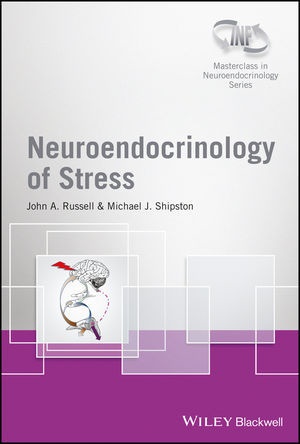Read more
Exposure to chronic stress has cumulative adverse effects on physical and mental health, considered to be the consequence of chronic exposure to high levels of stress hormones. Consequently, there is extensive research in progress to investigate and better understand how the brain organises neuroendocrine stress responses and how interventions may be able to moderate these responses to improve mental and physical health.Neuroendocrinology of Stress highlights current knowledge of the organisation and physiology of these stress response systems, how the impact of dysregulation of these systems is being investigated, and considers the ways in which contributions to both psychiatric and physical diseases resulting from chronic stress effects can be critically addressed in basic research* Written by a team of internationally renowned researchers, each chapter presents a succinct summary of the very latest developments in the field* Both print and enhanced e-book versions are available* Illustrated in full colour throughoutThis is the second volume in a new Series "Masterclass in Neuroendocrinology", a co- publication between Wiley and the INF (International Neuroendocrine Federation) that aims to illustrate highest standards and encourage the use of the latest technologies in basic and clinical research and hopes to provide inspiration for further exploration into the exciting field of neuroendocrinology.Series Editors: John A. Russell, University of Edinburgh, UK and William E. Armstrong, The University of Tennessee, USA
List of contents
List of ContributorsSeries PrefacePreface1. Methods and approaches to understand stress processing circuitry2.Brain monoamine systems in stress neuroendocrinology3.The synaptic physiology of the central nervous system response to stress4. Illuminating the (electro)physiology of anterior pituitary corticotrophs5. Stress and sympatho-adrenomedullary mechanisms6. Neuroendocrine mechanisms of stress regulation in humans7. Studying chronic stress in animals: purposes, models and consequences8. Modeling stress-related mood disorders in animals9. Glucocorticoid involvement in drug abuse and addiction10. The hypothalamo-pituitary-adrenal axis: circadian dysregulation and obesity11. Using rodent models to explore the role of 11 ?Ò-HSD2 in prenatal programming by glucocorticoids.12. Early-life stress: rodent models, lessons and challenges13. Mothering influences on offspring stress response mechanisms14. Translational research in stress neuroendocrinology: 11?Ò-HSD1, a case studyGlossaryIndex
About the author
John A. Russell, University of Edinburgh, UK.
William E. Armstrong, The University of Tennessee, USA.
Summary
Exposure to chronic stress has cumulative adverse effects on physical and mental health, considered to be the consequence of chronic exposure to high levels of stress hormones. Consequently, there is extensive research in progress to investigate and better understand how the brain organises neuroendocrine stress responses and how interventions may be able to moderate these responses to improve mental and physical health.
Neuroendocrinology of Stress highlights current knowledge of the organisation and physiology of these stress response systems, how the impact of dysregulation of these systems is being investigated, and considers the ways in which contributions to both psychiatric and physical diseases resulting from chronic stress effects can be critically addressed in basic research
* Written by a team of internationally renowned researchers, each chapter presents a succinct summary of the very latest developments in the field
* Both print and enhanced e-book versions are available
* Illustrated in full colour throughout
This is the second volume in a new Series "Masterclass in Neuroendocrinology", a co- publication between Wiley and the INF (International Neuroendocrine Federation) that aims to illustrate highest standards and encourage the use of the latest technologies in basic and clinical research and hopes to provide inspiration for further exploration into the exciting field of neuroendocrinology.
Series Editors: John A. Russell, University of Edinburgh, UK and William E. Armstrong, The University of Tennessee, USA

